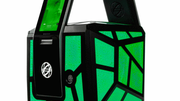Article
Diebold looks for traction amid integration effort, anemic ATM sales
Diebold recently held its first earnings call since the departure of Andy Mattes. Aside from his absence, the Q4 presentation was about the same as the previous three, showing slow ATM sales, modest gains for software and services, and ongoing integration costs.

February 22, 2018 by Suzanne Cluckey — Owner, Suzanne Cluckey Communications
On Feb. 13, Diebold Nixdorf held its first earnings call since the departure of former CEO Andy Mattes in December. Aside from his absence, the presentation was much the same as it's been for roughly the past year: ATM sales sagged, software and services revenues chalked up respectable gains, and costs related to the integration of Diebold and Wincor Nixdorf continued to add up.
The company's non-GAAP earnings for Q4, factoring out acquisition expenses, were down .5 percent year-over-year, driven by sluggish ATM sales. However, that half-percent represented an improvement over the three previous quarters, which were largely responsible for a full-year decline in revenue of 8 percent, measured in constant currency.
Interim co-CEO and chief financial officer Chris Chapman told analysts on the call that Q4 performance was consistent with downgraded guidance the company issued in July.
"Our fourth quarter results were in line with expectations," Chapman said during the call. "We're encouraged by the continued growth in services and software revenue. However, the hardware business continues to be under pressure in the banking market."
 The bottom line is also under pressure as Diebold Nixdorf continues to contend with post-acquisition issues and expenses, including a hitch in the supply chain that will skim $15 million off Q1 revenues, the required divestiture of Diebold U.K. and Ireland holdings in 2017 to appease the U.K. Competition and Markets Authority, and other ongoing integration and restructuring costs.
The bottom line is also under pressure as Diebold Nixdorf continues to contend with post-acquisition issues and expenses, including a hitch in the supply chain that will skim $15 million off Q1 revenues, the required divestiture of Diebold U.K. and Ireland holdings in 2017 to appease the U.K. Competition and Markets Authority, and other ongoing integration and restructuring costs.
Together, acquisition-related expenses of $140 million outstripped the $100 million in savings the company realized in 2017 as a result of accelerated merger activities, but Chapman said that speeding up the process in 2017 would result in a "substantial" decline in restructuring and integration payments in 2018.
The company expects to extract additional integration savings of at least $50 million this year — offset by a further $90 million in integration and restructuring costs.
By the time the company's "DN2020" plan is fully implemented, Diebold Nixdorf expects to extract $240 million in savings from the combination of two global ATM giants, and to have transformed the integrated enterprise into a business driven chiefly by software and services provision and less by hardware sales.
To that end, said Jürgen Wunram, interim co-CEO and chief operations officer, the company has reduced headcount by a net 1,000 employees, rationalized its product offering, renegotiated materials contracts, consolidated legal entities across Europe, jettisoned redundant facilities, merged and standardized service delivery, eliminated roughly a quarter of its parts depots, and reduced manufacturing capacity from 180,000 ATMs annually to 100,000 — aligned "exactly to what we see in the future," Wunram said.
In addition to these internal achievements over the past year, Wunrum listed recent wins in the company's banking and retail segments, including:
- A new software contract with JP Morgan Chase, the largest bank in the United States as measured by total assets, to deploy the company's Vynamic monitoring and fleet management software.
- A $45 million contract to provide comprehensive retail systems, software and services to a European fashion company operating in 12 countries.
- A competitive bid valued at nearly $40 million to refresh thousands of POS terminals located in nine European countries, including a multiyear maintenance services contract, for a leading grocer.
- A $19 million award for maintenance services, Vynamic marketing software and ATMs at Banco Santander in Mexico.
- Contracts valued at approximately $10 million to provide ATMs at three U.S. regional banks in support of their transition to Windows 10.
- An $8 million contract with the largest bank in Singapore to replace a competitor's terminals with Diebold Nixdorf recyclers and dispensers.
- A new, five-year maintenance agreement to service a competitors’ ATMs at Ceska Sporitelna in the Czech Republic.
- A renewed a services contract with a major European retailer with scope increased to include managed mobility services for about 7,500 POS and SCO devices over the next three years.
 Chapman wrapped up with a look at expected results for Q1, and his outlook on 2018.
Chapman wrapped up with a look at expected results for Q1, and his outlook on 2018.
"[W]e see a slow start to the year. Specifically, within our systems line of business, we expect first quarter revenue and profit to be down versus 2017. …
"Despite the expected slow start to the year, we are encouraged by the current pipeline of connected commerce opportunities in front of us as we continue to gain traction in ATM-as-a-Service, grow demand for our new Vynamic software solutions and expand our retail offerings."
About Suzanne Cluckey
Suzanne’s editorial career has spanned three decades and encompassed all B2B and B2C communications formats. Her award-winning work has appeared in trade and consumer media in the United States and internationally.
Included In This Story
Diebold Nixdorf
As a global technology leader and innovative services provider, Diebold Nixdorf delivers the solutions that enable financial institutions to improve efficiencies, protect assets and better serve consumers.
 ChatGPT
ChatGPT Grok
Grok Perplexity
Perplexity Claude
Claude












